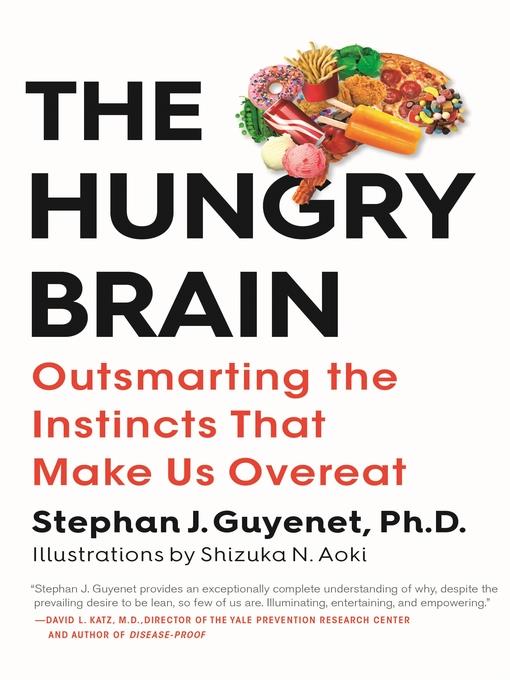
The Hungry Brain
Outsmarting the Instincts That Make Us Overeat
فرمت کتاب
ebook
تاریخ انتشار
2017
نویسنده
Stephan J. Guyenet, Ph.D.ناشر
Flatiron Booksشابک
9781250081230
کتاب های مرتبط
- اطلاعات
- نقد و بررسی
- دیدگاه کاربران
نقد و بررسی

Starred review from December 5, 2016
Health writer and obesity researcher Guyenet has written a remarkable book that approaches health and weight management not through diet or fitness, per se, but by understanding and combating the urge to overeat. Guyenet wields his degrees in biochemistry and neuroscience as he acts as the reader’s guide through a wilderness of raw data; he explains how the brain works, discusses important research, and develops strategies from this information. In 11 chapters organized in a loose, almost anecdotal manner, Guyenet first covers the basics of caloric intake and digestion before examining the chemical reactions behind the pleasure- and calorie-seeking brain and factors in the U.S. diet (such as “food reward” and convenience) that contribute to overeating. Guyenet also discusses the science behind satiety and hunger, complete with various—lovely—illustrations of brains. The final chapter is crucial, since it synthesizes all the information into a practicum on how to overcome the hungry brain’s tendency to overeat; Guyenet provides six clear instructions. This fun, insightful, and important text will appeal to both science lovers and fitness fanatics. Agent: Howard Yoon, Ross Yoon Agency.

December 15, 2016
Obesity researcher and health writer Guyenet seeks an answer to why, "between 1980 and the present, the U.S. obesity rate more than doubled" despite our national obsession with dieting. It is certainly not for lack of information, since there are thousands of self-help books on the subject of the relationship between diet and health and longevity. After exploring and rejecting a number of the proposed solutions, the author, who has a doctorate in neurobiology, concludes that it is not necessarily fats or refined sugar in our diets that are the culprits. Following in the footsteps of Daniel Kahneman's Thinking, Fast and Slow (2011), Guyenet looks to the structure of the human brain and how it has evolved over time. "The brain's thought processes can be roughly divided into two systems," he writes. "System 1 is fast, effortless, intuitive, and unconscious, while system 2 is slow, effortful, rational, and conscious." The first is impulsive and ruled by the brain's reward system, so our conscious attempts to follow a strict diet are undermined by anticipations of tastiness "selected over millions of years" when food was scarce and difficult to procure. Putting food on the table can be hard work. In a world in which calorie-rich convenience foods are readily available, this presents more temptation. The gratification that these foods provide overrides feelings of satiation and encourages us to overeat. Guyenet explores the latest research on how insulin regulates fat storage, as well as the role of the neurotransmitter leptin, which controls appetite. He also finds a direct relationship between sleep loss and eating behavior; we often compensate by eating higher-calorie foods. Not getting enough regular, restorative sleep "increases the reward system's responsiveness to food cues." What we eat is largely a matter of individual choice, but the author supports regulating advertisements for unhealthy foods that target children. A helpful guide offering encouragement to those looking for ways to lead healthier lives.
COPYRIGHT(2016) Kirkus Reviews, ALL RIGHTS RESERVED.

























دیدگاه کاربران